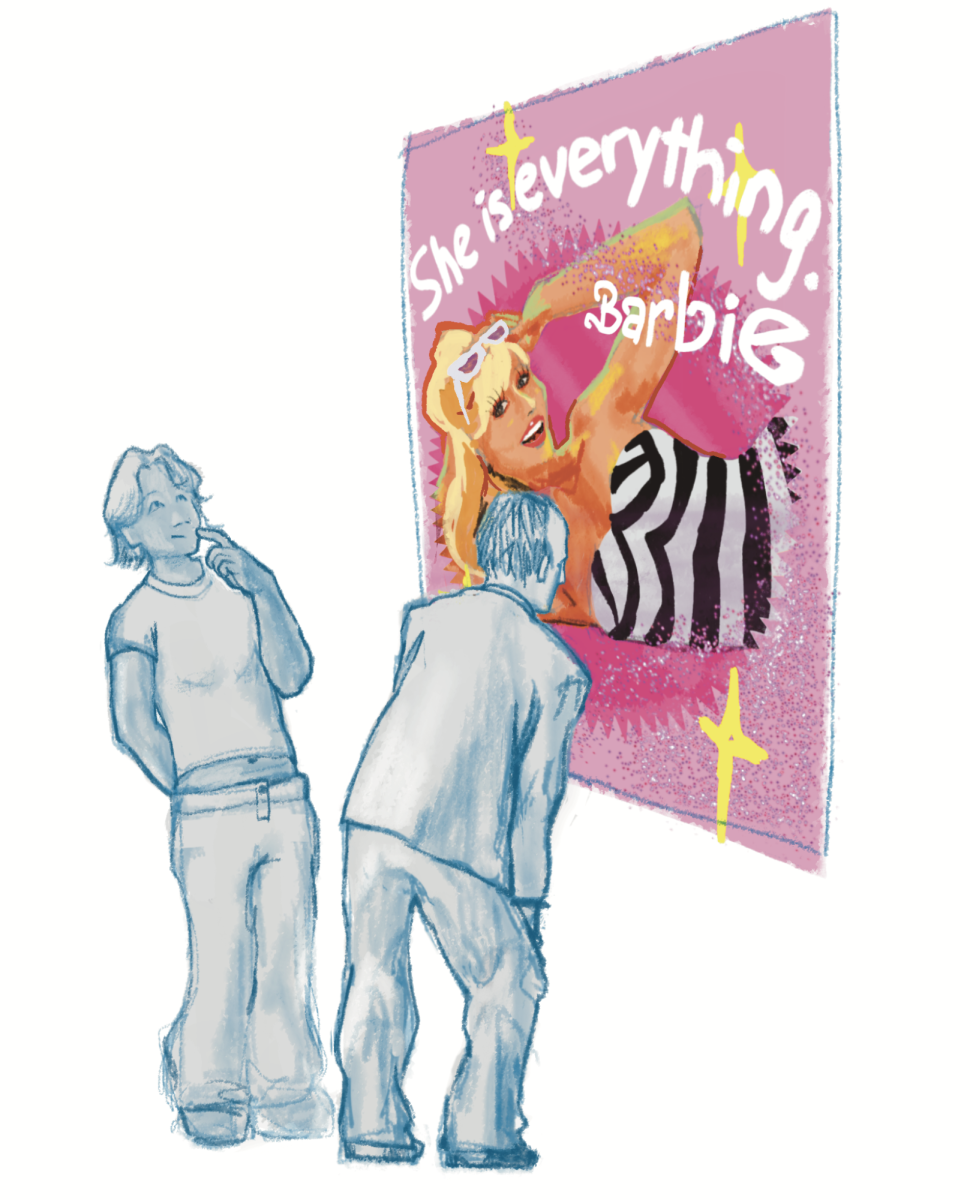First person to touch foot on the moon, holder of 250 careers and counting, voted president in every consecutive election since 1992. She’s smart. She’s innovative. She’s a global sensation. She’s Barbie.
Last summer, the blockbuster movie “Barbie” came to theaters, attracting millions of viewers, while teens and adults alike dolled up in bright pink outfits. Clips of the movie flooded social media platforms as creators marveled at the movie, applauding it for promoting feminism.
Yet, beyond the flare and pizazz, this film didn’t actually make an inroad in the fight for gender equality. While I thought the premise and message of the film had great intentions of pointing out the sexism and misogyny against women in today’s society, I don’t think the film truly made an impact.
During the Golden Globes a couple weeks ago, host Jo Koy introduced “Barbie” as “a movie about dolls with big boobies” along with a string of other highly offensive lines.
While I did not love the movie, I was disappointed to see a supposedly mature man make such disgusting comments. It doesn’t get more ironic than this: a movie about feminism is subjected to childish, sexist jokes.
Although Barbie was nominated for eight awards at the Oscars including Best Picture, neither the female director Greta Gerwig nor lead female actor Margot Robbie received any individual nominations.
Instead, Ryan Gosling was nominated for Best Male Supporting Actor and Best Original Song due to his performance singing “I’m Just Ken.”
Yes, you heard that right. The song about men feeling like an accessory, a throwaway comedic reference to the female experience, is being considered for awards over the heart-wrenching masterpiece “What Was I Made For?” created by Billie Eilish that was woven throughout the entire film. Fittingly, this song was about feeling lost and unfulfilled in a world pressing down on her.
While I found these events utterly disappointing, I do not think the film truly was as sensational as it was talked up to be. Upon rewatching “Barbie,” I was underwhelmed. As a woman, I feel as though the movie didn’t go into enough depth on necessary issues.
Sure, it pointed out the glaring double standards and blatant misogyny present in today’s society, but it never went further beyond that. Points about hypersexualization, the wage gap, disrespect and so forth have been touched upon again and again over the past years.
Sadly, it seems as if society still hasn’t learned its lesson, as we continue to repeatedly struggle with these same issues while ignoring the critical nuances within them.
Instead, I would have enjoyed watching the “Barbie” movie if it dove into the dichotomy of the female experience; showcasing how it feels to be ignored, undermined and undervalued by society, yet we remain resilient, empathetic, creative and intelligent.
I think one reason feminist movements aren’t taken seriously is the nuances of misogyny aren’t always apparent. It isn’t just being catcalled on the street.
Misogyny is also the deeper, internal feeling of disrespect from men because of your gender. These issues are much more complex and harder to portray, especially with only two hours on a screen.
Another issue with “Barbie” is the target audience is not clear. The playful and shallow plot appears as though it was made for young children. Yet, the underlying messages and jokes were directed toward a more mature audience.
If the creators of the film had stuck to targeting an older audience, they might have been able to successfully deliver a deeper plot.
In addition, the glaring motif of motherhood fell flat. Speaking to my own mother, she was not impressed by the way “Barbie” showed the mother-daughter relationship as performative and rehearsed.
I don’t know whether this was due to casting, but there was no emotional connection between the mother and daughter in the film.
Leaving the theater after watching “Barbie,” I felt unfulfilled, as it never reached the core of my personal experience. Despite the film being written and directed by a female, Greta Gretwig, it seemed like an attempt by men to illustrate the struggles of women.
This could be the result of Hollywood’s male-dominated perspective or the collaboration with toy company Mattel – both of whom might have seen this film as a way to increase profits and boost their image over conveying a deep message.
“Barbie” is definitely a start, but I think we are capable of achieving much more. I would like to see more creativity and emotional depth in media depictions of the issues females face, especially in films applauded for being empowering.
Activism is not about rehashing surface-level stereotypes, but about promoting lasting change.


